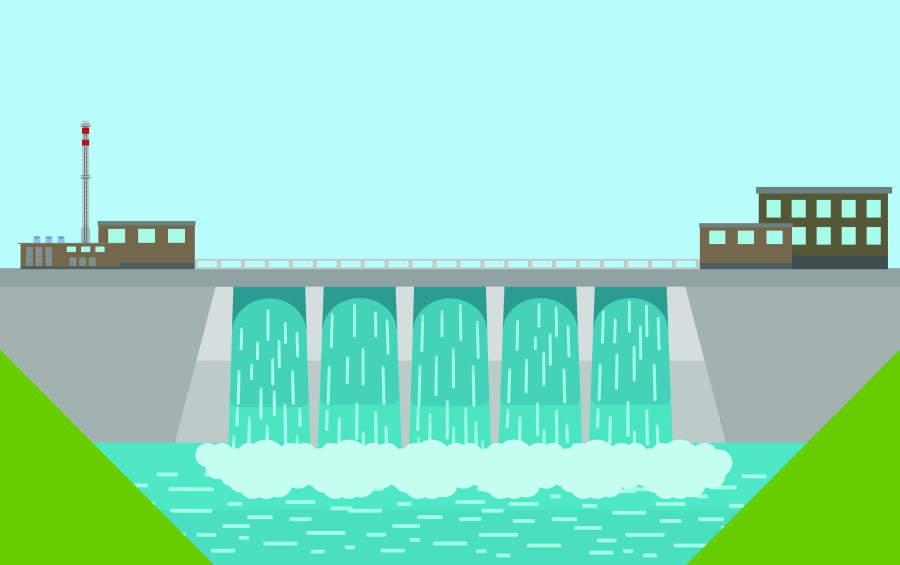Money
Upper Trishuli 1 project developer seeks approval for funding
A consortium of international lenders have agreed to finance the debt portion of the $674 million hydroelectric scheme.
Prahlad Rijal
Last week, a consortium of nine international lenders agreed to finance the debt portion of the $674 million hydroelectric scheme. The proposed 216 megawatt plant is located in Rasuwa district north of Kathmandu.
"We have began the paperwork by applying for approval from Investment Board Nepal," said Giri Raj Adhikari, general manager of the project. "Board officials said it would take around two weeks to conclude the first round of assessment before they forward our application to Nepal Rastra Bank for final approval."
According to Adhikari, the company expects to receive approval from Nepal Rastra Bank within four months and begin construction after that.
As per the Foreign Investment and Technology Transfer Act 2019, Investment Board Nepal is the approving authority for foreign investments above $53 million, and the board must provide the approval within seven days of submission of the application by the investor.
The central bank is also required to carry out a detailed investigation of the source of funds, and the developer's compliance with the terms and conditions of the foreign exchange debt and hedge fund agreements.
International Finance Corporation, Asian Development Bank, Asian Infrastructure Investment Bank, Export-Import Bank of Korea, Korea Development Bank, CDC Group, Netherlands Development Finance Company, PROAPRCO Development Financial Institution and the OPEC Fund for International Development have agreed to fund the debt portion of the hydroelectric scheme expected to go into operation in 2024.
The project is facing a delayed start owing to lengthy paperwork. Construction is slated to begin in two months as per the developer's construction schedule.
"Past records show that projects such as Kabeli A saw a year's delay in getting approval from the central bank; but as Upper Trishuli has been prioritised by the government, we hope to acquire the approval soon," said Adhikari. "The construction of the project can only move forward following Nepal Rastra Bank's approval."
The Upper Trishuli 1 plant is designed to generate 1,533 GWh annually from three power generating units with a total installed capacity 216 megawatts.
According to officials, 38.75 percent of the total annual energy will be produced in the dry season and 61.25 percent in the wet season. The electricity generated by the plant will be evacuated to the under-construction Trishuli 3B hub substation in Nuwakot.
The developer and the Energy Ministry signed a project development agreement in December 2016. As per the terms of the agreement, the sponsors — a Korean consortium, local promoter and International Finance Corporation — will be responsible for the design, engineering, financing, construction, completion, commissioning, ownership, operation and maintenance and transfer of the project.
It took three years after signing the project development agreement for the developer to conclude financial closure owing to delays in the formulation of a hedging mechanism by the government, and a row between the developer and the government on contributions to the hedge fund.
When the Nepal Electricity Authority signed a power purchase agreement with Nepal Water and Energy Development Company a year ago to purchase the electricity generated by the project, the state-owned power utility agreed to pay in US dollars for a period of 10 years or until the portion of the investment made with foreign loans was recovered by the developer, whichever came first.
The project sank into uncertainty after the developer threatened to pull out from Nepal over a foreign exchange hedge row after the government asked it to contribute a hefty sum to the hedge fund which would be used as a cushion against exchange rate risk.
Subsequently, the developer agreed to provide 17 percent of the energy to the power utility free of cost after 14 years, and the government and the electricity authority agreed to contribute two-thirds of the amount of the hedge fund which ended the deadlock.




 8.67°C Kathmandu
8.67°C Kathmandu














